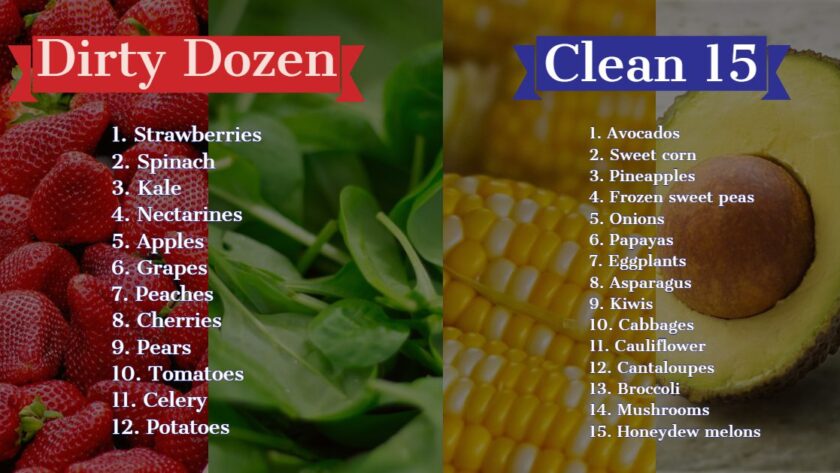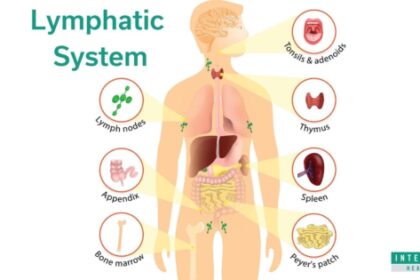In a world where organic produce is often heralded as the gold standard for health-conscious consumers, the Clean 15 stands as a beacon of hope for those seeking to minimize their exposure to pesticides without breaking the bank. The Clean 15 is a list of fruits and vegetables that, when conventionally grown, tend to have the lowest levels of pesticide residue. This list is released annually by the Environmental Working Group (EWG), a nonprofit organization dedicated to protecting human health and the environment.
Clean 15 Foods Sprayed With The LEAST Pesticides:
- Avocado: Creamy and rich, avocados are not only delicious but also low in pesticide residues due to their thick skin.
- Sweet Corn: With its protective husk, sweet corn often harbors fewer pesticides, especially when sourced from reputable growers.
- Pineapple: The tough outer skin of pineapples helps shield the fruit from pests, resulting in minimal pesticide use.
- Onion: Onions boast natural defenses against pests, reducing the need for chemical pesticides during cultivation.
- Papaya: This tropical fruit has a natural resistance to pests, contributing to lower pesticide levels in conventional farming.
- Sweet Peas (Frozen): Frozen sweet peas often contain fewer pesticides compared to fresh produce, making them a convenient and safe choice.
- Eggplant: With its smooth skin and natural resilience, eggplants typically require fewer pesticide applications.
- Asparagus: Asparagus spears are naturally resistant to pests, requiring minimal pesticide intervention during cultivation.
- Cauliflower: This versatile cruciferous vegetable tends to have lower pesticide residues, making it a popular choice for health-conscious consumers.
- Broccoli: Like cauliflower, broccoli is a member of the Brassicaceae family and offers similar benefits in terms of reduced pesticide exposure.
- Mushrooms: Grown in controlled environments, mushrooms often have minimal pesticide residues, especially when sourced from reputable growers.
- Cabbage: With its tightly packed leaves, cabbage naturally repels pests, reducing the need for chemical pesticides.
- Honeydew Melon: Similar to other melons, honeydew’s thick rind helps protect the fruit from pests, resulting in lower pesticide levels.
- Kiwi: Kiwi fruit typically requires fewer pesticide applications, thanks to its natural resistance to pests.
- Cantaloupe: The rough skin of cantaloupe helps safeguard the fruit from pests, contributing to lower pesticide residues.
While choosing organic options is always a great way to reduce pesticide exposure, the Clean 15 provides consumers with budget-friendly alternatives that are still relatively low in pesticide residues. By incorporating these fruits and vegetables into your diet, you can enjoy the benefits of fresh produce while minimizing potential health risks associated with pesticide exposure.
The Dirty Dozen – Foods with the Highest Pesticide Residues
In the realm of nutrition and health, the term “Dirty Dozen” carries a weighty significance. This infamous list, compiled annually by the Environmental Working Group (EWG), highlights the fruits and vegetables that tend to have the highest levels of pesticide residues when conventionally grown. For consumers looking to minimize their exposure to harmful chemicals, avoiding the Dirty Dozen is crucial. Here are the top twelve offenders to be wary of:
- Strawberries: These sweet berries often top the Dirty Dozen list due to their thin skin, which makes them more susceptible to pesticide penetration.
- Spinach: Leafy greens like spinach tend to harbor significant pesticide residues, making organic options a safer choice.
- Kale: A staple in green smoothies and salads, kale is unfortunately high on the list of pesticide-contaminated produce.
- Nectarines: With their delicate skin, nectarines are prone to pesticide buildup, especially when grown conventionally.
- Apples: Despite their popularity, apples consistently rank high for pesticide residues, making organic varieties preferable.
- Grapes: Whether eaten fresh or in the form of raisins, grapes often contain high levels of pesticide residues, particularly on their thin skins.
- Peaches: Like nectarines, peaches have a soft skin that readily absorbs pesticides, earning them a spot on the Dirty Dozen list.
- Cherries: These juicy fruits may harbor numerous pesticides, posing potential health risks to consumers.
- Pears: Pears’ thin skin makes them susceptible to pesticide contamination, emphasizing the importance of opting for organic when possible.
- Tomatoes: Despite their nutritional benefits, conventionally grown tomatoes often contain pesticide residues, especially on their skin.
- Celery: With its porous texture, celery can absorb pesticides, making organic celery a safer choice for health-conscious consumers.
- Potatoes: Whether mashed, baked, or fried, potatoes frequently contain pesticide residues, particularly on their skins.
By avoiding the Dirty Dozen and opting for organic varieties whenever feasible, consumers can significantly reduce their exposure to harmful pesticides. While organic options may come with a higher price tag, the potential health benefits far outweigh the additional cost. By making informed choices about the foods we consume, we can take proactive steps towards safeguarding our health and well-being in the long run.
Top 3 Ways To Remove Pesticides From Your Body:
- Take Activated Charcoal: This acts as a binder to remove pesticides from your body and it’s good to have on hand in case of food poisoning, alcohol poisoning or any other form of toxicity building up in the system.
Click here to get activated charcoal from Schizandu organics for 15% off!
- Take Radiate 21!: Radiate 21 is a blend of 21 botanicals from Amazonian, Chines and Ayurvedic medicine to support the health of the gut lining, liver, lungs, lymphatic system and more. It helps to counteract the free radical damage caused by pesticides in the body as well as helps to support the strength of the body in recovery, including supporting the liver to flush these things out of the body. You can learn more about Radiate 21 at Radiate21.com.
Click Here To Get Radiate 21 from Radiate21.com





